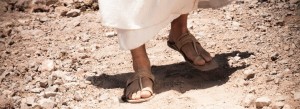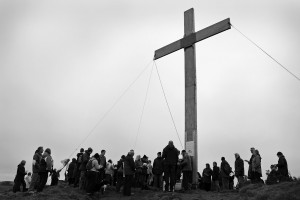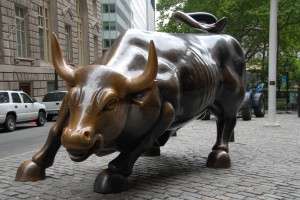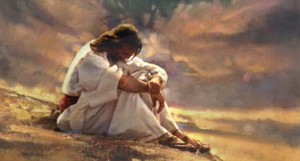6. Eaten Alive

Because for Your sake I have borne reproach; Dishonor has covered my face. I have become estranged from my brothers And an alien to my mother’s sons. For zeal for Your house has consumed me, and the reproaches of those who reproach You have fallen on me. When I wept in my soul with fasting, it became my reproach. When I made sackcloth my clothing, I became a byword to them. Those who sit in the gate talk about me, and I am the song of the drunkards. Reproach has broken my heart and I am so sick. ( Psalm 69:7-12)
The Hebrew word for consumed is often translated as being eaten, or even devoured. Is your zeal for the Lord enough to make you feel like you are being eaten alive? Or you’re estranged from your family? Of course it may not be your zeal that’s eating you alive. You may be on the menu of those who are watching you, such as mockers, scoffers, God-haters, and “religious” types.
Doing Godly works is enough of a reason to receive reproach. King David’s fasting became a reproach; sackcloth made him a byword; and he was even a song for drunkards! In the Hebrew, David became a proverb, an illustration of what not to do.
Now obviously, Christ is the quintessential example of suffering for good. His entire life and ministry was doing good, to the glory of God the Father. Yet what did He receive? Scorn. Reproach. Persecution. Death. And there were only a few who understood this: One of the criminals who were hanged there was hurling abuse at Him, saying, “Are You not the Christ? Save Yourself and us!” But the other answered, and rebuking him said, “Do you not even fear God, since you are under the same sentence of condemnation? And we indeed are suffering justly, for we are receiving what we deserve for our deeds; but this man has done nothing wrong.” And he was saying, “Jesus, remember me when You come in Your kingdom!” And He said to him, “Truly I say to you, today you shall be with Me in Paradise.” ( Luke 23:39-43)
At the end of the Psalm, we see this treatment exacted its price: Reproach has broken my heart and I am so sick. Christ took this personally. That is the cost of love; the ones we love and are willing to die for are at times the very same people who have scorned us, and broken our hearts. Are you willing to follow in Christ’s steps and show His love?

Note what happens to you if you’re doing what Jesus did:
Blessed are those who have been persecuted for the sake of righteousness, for theirs is the kingdom of heaven. (Matthew 5:9)
If the world hates you, you know that it has hated Me before it hated you. If you were of the world, the world would love its own; but because you are not of the world, but I chose you out of the world, because of this the world hates you. (Matthew 15:18-19)
Indeed, all who desire to live godly in Christ Jesus will be persecuted. (1 Timothy 3:12)
For what credit is there if, when you sin and are harshly treated, you endure it with patience? But if when you do what is right and suffer for it you patiently endure it, this finds favor with God. (1 Peter 2:20)
If your current behavior does not stir up any of the above listed New Testament consequences, or if it doesn’t seem as if you’re being eaten alive, consider your actions. They may be wrong or insufficient. Are you willing to follow in His steps and show His love, regardless of the consequences?





 Knowing that you were not redeemed with perishable things like silver or gold from your futile way of life inherited from your forefathers, but with precious blood, as of a lamb unblemished and spotless, the blood of Christ. For He was foreknown before the foundation of the world, but has appeared in these last times for the sake of you. (1 Peter 1:18-20)
Knowing that you were not redeemed with perishable things like silver or gold from your futile way of life inherited from your forefathers, but with precious blood, as of a lamb unblemished and spotless, the blood of Christ. For He was foreknown before the foundation of the world, but has appeared in these last times for the sake of you. (1 Peter 1:18-20)